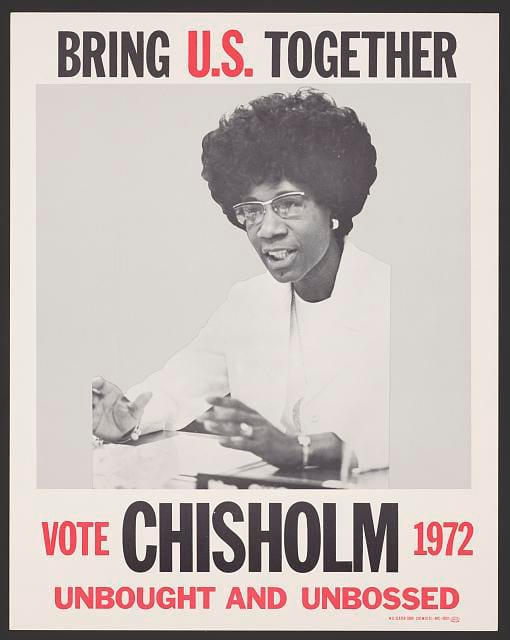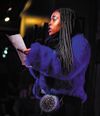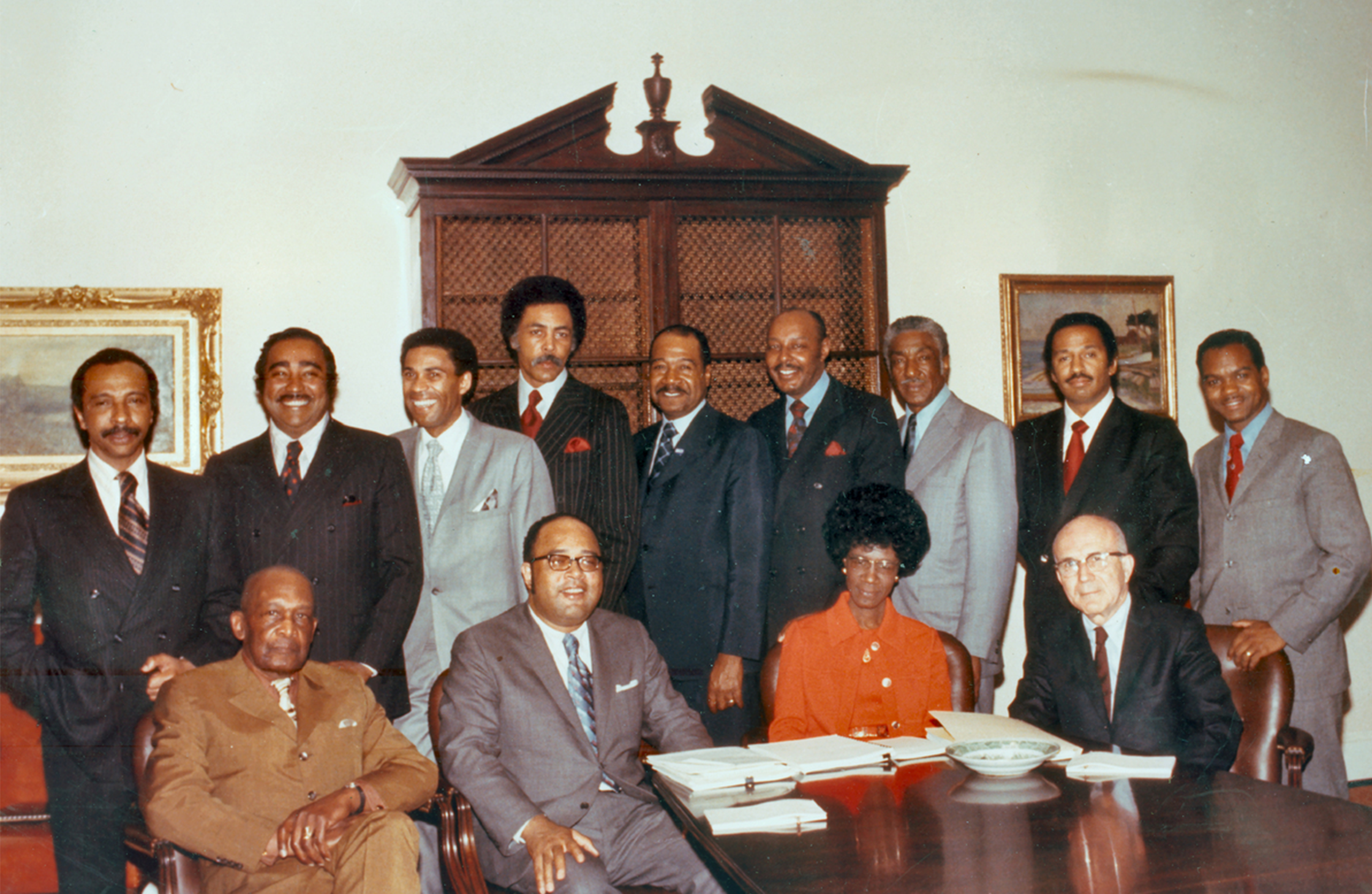Chisholm with fellow founding members of the Congressional Black Caucus in 1971
Despite her admirable legacy, many local schools and libraries aren’t highlighting the achievements of one of the most important Black women in American history.
Shirley Chisholm has paved the way for Black individuals who felt they weren’t seen in the political world. After becoming the first African American female figure in Congress in 1968, she pursued the Democratic Party’s presidential nomination in 1972. The party refused to let her participate in the presidential debates, so she sued…and won! But even after winning the case, she was only allowed to make one speech.
Shirley Chisholm entered 12 primaries, winning 152 delegates despite an under-financed campaign and hostility from the predominantly male Congressional Black Caucus. During her time in the House of Representatives, Shirley sponsored more than fifty bills; endorsing race and gender equality, championing the plight of the poverty-stricken, and working to end the Vietnam War. She co-founded the National Women’s Political Caucus in 1971. In 1977, she became the first Black woman — and second woman — to ever serve on the powerful House Rules Committee.
Following in the footsteps of Shirley Chisholm, African Americans like Kamala Harris, Maxine Waters, Eleanor Holmes Norton, Sanford D. Bishop, Bobby Scott, James E. Clyburn, Bennie Thompson, Sheila Jackson Lee, Danny K. Davis, Barbara Lee, and David Scott represent us. Barack Obama became the first African American President, with Michelle Obama as the first African American First Lady. We even have Black lawyers like Chauna Abner, Jasmine Adams, Virgil Adams, Sara Alexandre, Janice Alfred, Robert Allen, Dymond Anthony, Jasmine Banks, and John Banks to advocate for us, as well.
Washington school districts should actively educate students about Shirley Chisholm. Her story of achievement despite the odds can inspire students to represent their communities in the White House and Congress. Shirley Chisholm made important strides for equality — in a far more racist world than today — even when everyone around her told her it was impossible. When her own people doubted her, told her to give up, and told her to just settle with the opportunities she had already been given, when her family was embarrassed by her and shut her out, Chisholm created a powerful and inspiring legacy.
In so many libraries and history classes, Black students aren’t educated about those who have paved the way for them to take positions in the Democratic and Republican parties. The world of power, where you can construct legislation that doesn’t systemically oppress your people; one that doesn’t deprive them of their rights or take away their dignity; that doesn’t shackle them or imprison them in unnecessary hardship; that doesn’t portray them as a stereotype, but as African Americans who set their own tables. Black students need to be told about a world where their voice is their microphone, their actions are their sirens, their melanin is their uniform, and their names are the headline.
Black students, ring Shirley Chisholm’s name through the halls next Black History Month!

Anyla McDonald aspires to become a poet, short story writer, and essayist speaking about racism against Black people, current world problems, and hot topics. When she writes, she does it with purpose and passion. She feels destined to touch others with her words, and wants to be known as someone who takes a stand and impacts lives with her writing.
Anyla is a columnist for Tumbleweird and an intern at Taylored Living Magazine.


